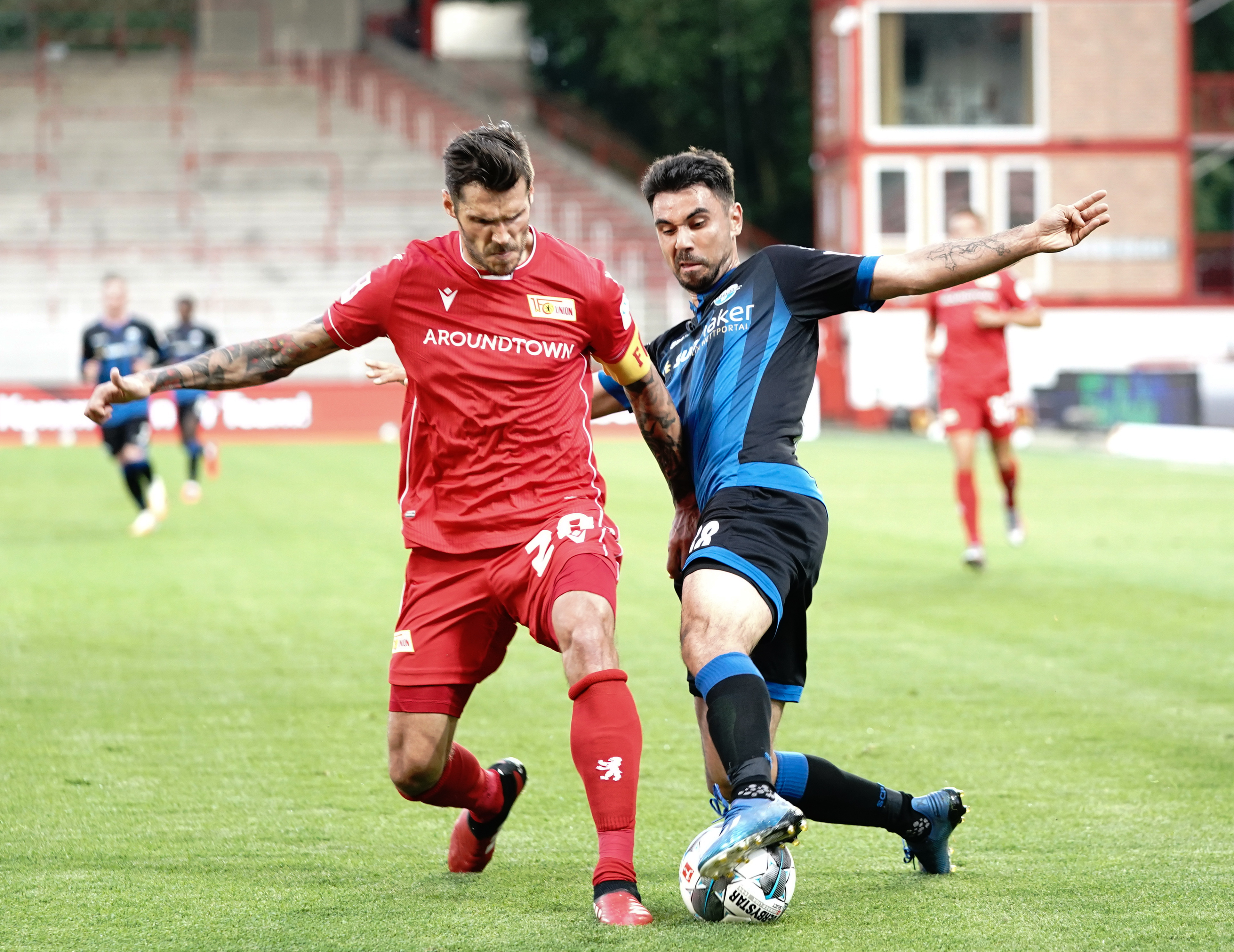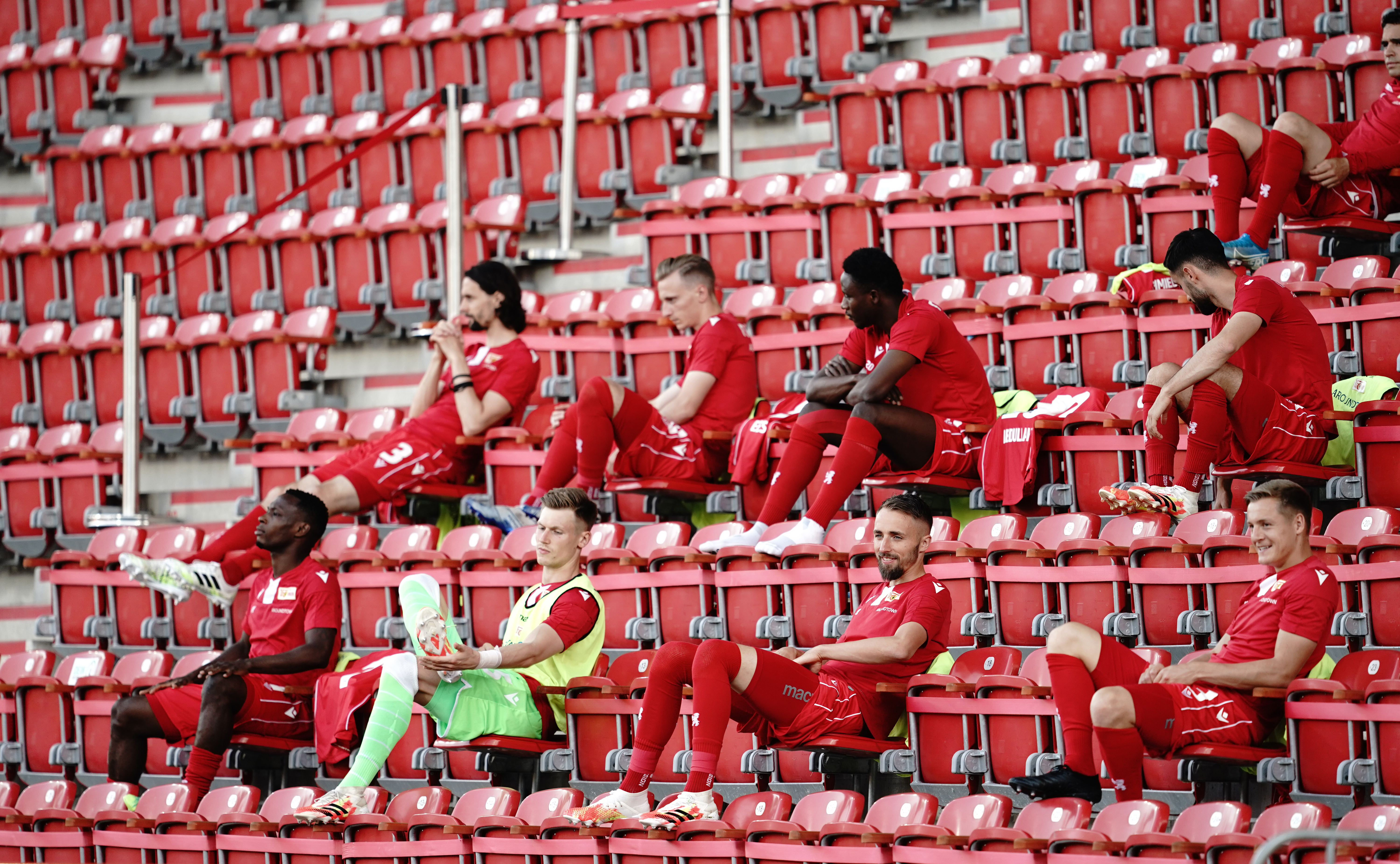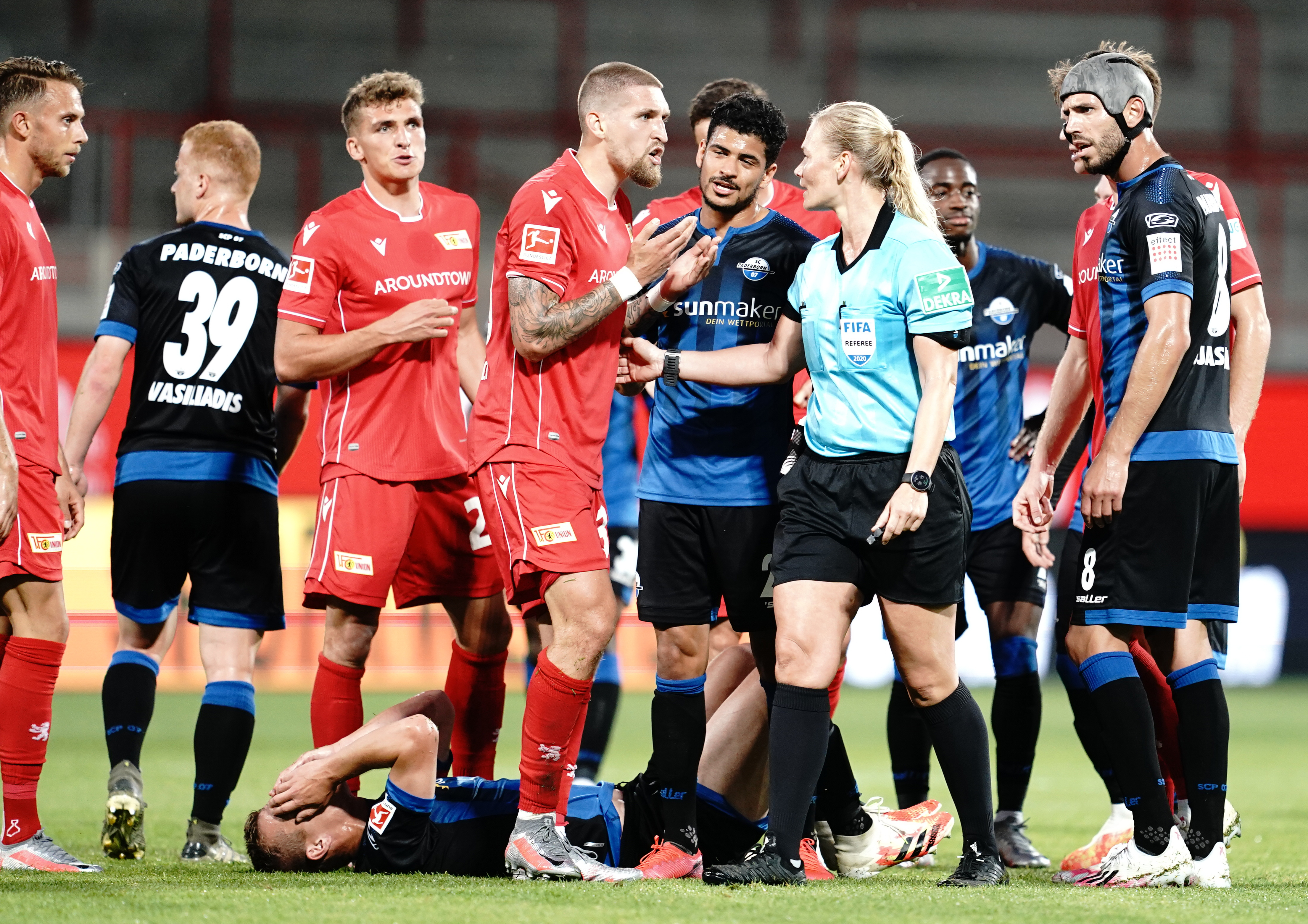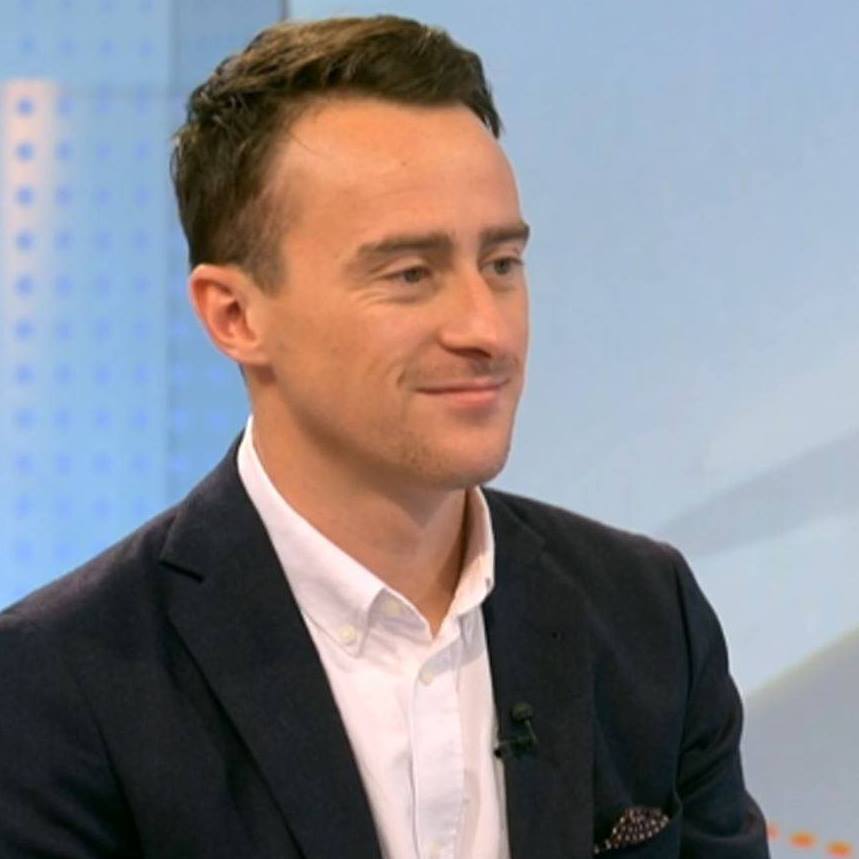Staying up where no one can see: what's it actually like at games behind closed doors during coronavirus?
FourFourTwo headed to a crucial Bundesliga match to find out just what we can expect from empty Premier League stadiums

The best features, fun and footballing quizzes, straight to your inbox every week.
You are now subscribed
Your newsletter sign-up was successful
Want to add more newsletters?

Five times a week
FourFourTwo Daily
Fantastic football content straight to your inbox! From the latest transfer news, quizzes, videos, features and interviews with the biggest names in the game, plus lots more.

Once a week
...And it’s LIVE!
Sign up to our FREE live football newsletter, tracking all of the biggest games available to watch on the device of your choice. Never miss a kick-off!
Join the club
Get full access to premium articles, exclusive features and a growing list of member rewards.
There was no banter on the train, for one thing. A carriage that would normally have pulled into Berlin-Koepenick station filled with the stench of beer, sounds of laughter and the palpable feeling of anticipation was practically empty. That excitement is usually one of the best things about a day at the football.
It was a gorgeous evening in Berlin, but the streets between station and stadium were eerily quiet. No fan groups quickening their step on the way to the ground ahead of kick off; no touts trying to squeeze in a last-minute sale; no scarves or programme vendors. Just a few joggers and people making their way home after a day’s work.
Covering a Bundesliga clash between Union Berlin and Paderborn on a gorgeous Berlin evening for @FourFourTwo. An iconic stadium built by fans...and hardly a soul in sight. #FCUSCP pic.twitter.com/Nv0V4lY3GvJune 16, 2020
An der Alten Forsteri, the woodland home of Union Berlin, remained as impressive as ever in the evening twilight, however. Police had barricaded - and some stood guarding - more or less every possible entrance around the ground, bar the main car park at the front of the stadium.
FourFourTwo has been to a fair few Union games in our time, but this was the first time we’ve ever used the front door.
GUIDE Bundesliga live stream: How to watch every German top flight game this week
Stewards wearing PPE thoroughly checked press credentials, ticking off names and waving hacks inside.
The customary bag check, though, is now accompanied by your temperature check too. A moustachioed man – more common than ever in Berlin after lockdown – popped a fresh lid on an ear thermometer and jammed it in there. All clear; on FFT went.
The best features, fun and footballing quizzes, straight to your inbox every week.

Around the ground, there were various “zones”, clearly marked out. FFT was only allowed into a section of the seating stand normally reserved for season ticket holders.
The ball sounded like a concrete block, tackles sounded like a traffic pile-up and the celebrations after goals were truly pathetic.
An der Alten Forsterei holds more than 21,000 fans, but has only 3,000 seats. There were a few scattered club employees and perhaps 15 other journalists spread out around it. Union and Paderborn substitutes were sitting in the next stand along, also spread out and not really going through the bother of talking to one another.
The new press seats were directly behind the Union dugout. Once the game started, assembled scribblers could clearly hear almost everything coach Urs Fischer said to his players – telling his midfielders to get tighter, praising striker Seb Andersson for his hold-up play and issuing the occasional bollocking.
Player interaction was easily within earshot, and even referee Bibiana Steinhaus (Germany’s first female top-flight ref, and considered a bit of a legend) could be heard from time to time.
Canned crowd noise might be familiar and preferable for home audiences, but this is a rare chance for fans to get a bit closer to the action and understand how it all works. That shouldn't be sniffed at.

Talking aside, the ball sounded like a concrete block (somehow louder than amateur level footballs ever are), tackles sounded like a traffic pile-up and the celebrations after goals were truly pathetic.
Union Berlin won and, with those three points, confirmed their survival in their first season ever in the Bundesliga. A stadium known for its atmosphere would usually have been bouncing.
Instead, the only goal of the game was greeted by a ripple of applause and few “Jaaaaas!” from the assorted staff. That was it.
Union's players had t-shirts made celebrating their Klassenerhalt but nobody was there to appreciate that touch.
Post-match, there was no mixed zone or physical press conference. Journalists had been invited, ahead of the match, to submit questions via email to the club PR. The best ones were chosen and then the managers and players appeared via video link on the big screens to answer them. It was odd, but it worked. It has to.
On the way out, looking back inside the main entrance to the building, where the players had arrived, bar staff were running in and out of the home dressing rooms carrying pints of beer. Union's celebrations were in full flow in the heart of an empty stadium.
They were not out on the pitch with their fans, but in segregated dressing rooms by themselves.
Meanwhile, down in Bremen, Bayern's players were celebrating winning the Bundesliga in much the same way. This is the fate Liverpool have to look forward to.
Back onto the empty train. A strange evening at the football.
While you're here, why not subscribe to the mag - for just £20, you can get six months of the world's finest football magazine with a FREE Juice Power Bank (worth £29.95)
NOW READ...
ANALYSIS A transfer to the Premier League won't reverse Philippe Coutinho's fall from grace
LIST The 100 greatest football managers of all time
GUIDE Premier League live stream best VPN: how to watch every game from anywhere in the world

Ed is a staff writer at FourFourTwo, working across the magazine and website. A German speaker, he’s been working as a football reporter in Berlin since 2015, predominantly covering the Bundesliga and Germany's national team. Favourite FFT features include an exclusive interview with Jude Bellingham following the youngster’s move to Borussia Dortmund in 2020, a history of the Berlin Derby since the fall of the Wall and a celebration of Kevin Keegan’s playing career.
 Join The Club
Join The Club










